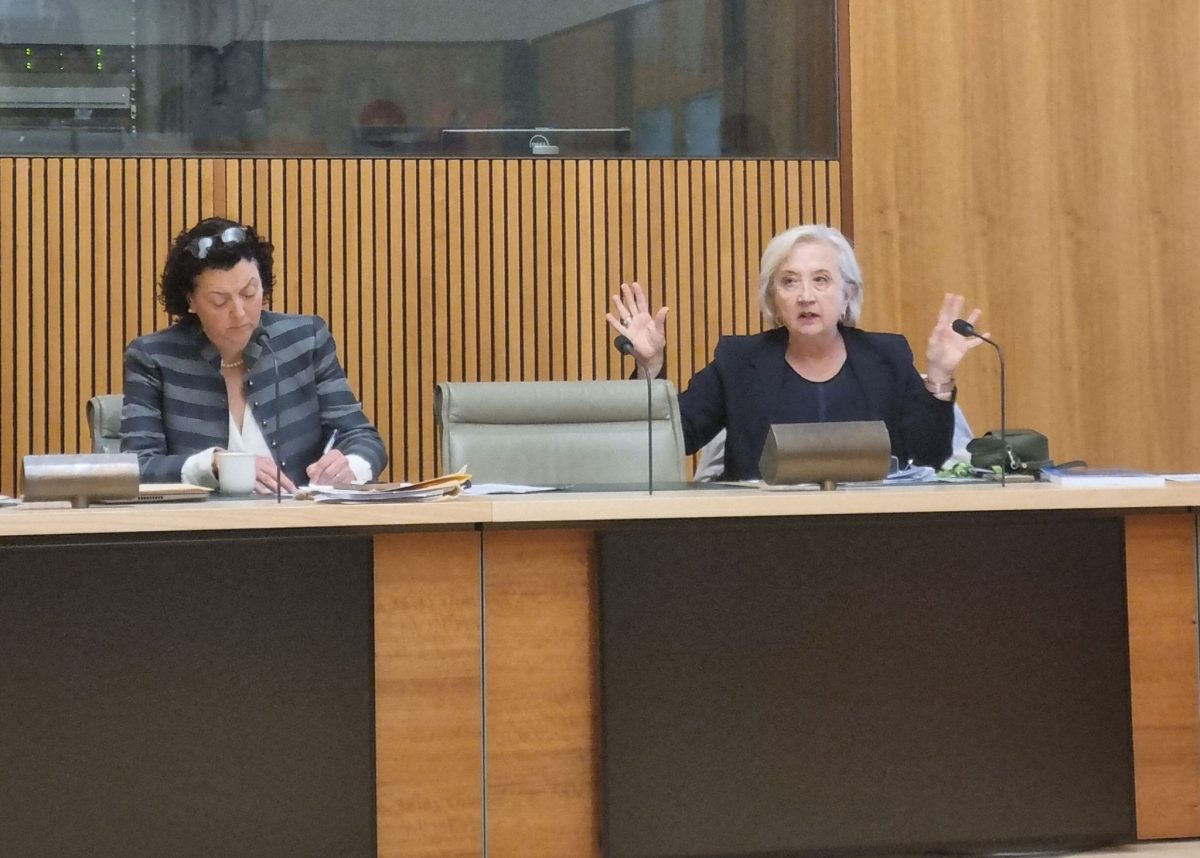
After her report was tabled, Commissioner Anne Hollonds (R) presented its details to the Parliamentary Friends of Child & Adolescent Health & Mental Health, which includes Independent MP Monique Ryan (L). Photo: ARACY.
“The light had gone out of several of these children’s eyes because we had, as a society, completely failed them.”
That’s the stark image painted by National Child Commissioner Anne Hollonds, discussing her new report: ‘Help way earlier!’: How Australia can transform child justice to improve safety and wellbeing.
Over the past year, her small Australian Human Rights Commission (AHRC) team has investigated opportunities for reform of child justice and related systems across the country.
Less than a month after the report was tabled in Federal Parliament (20 August), the Senate called for an inquiry and report on the matter by 26 November.
While Ms Hollonds was “really pleased” to hear of this move, the former child protection worker said she was concerned it wouldn’t be enough.
“Sometimes I feel it’s a bit like climate change,” said the National Child Commissioner. “You’ve got the science right in front of you and choose not to believe it, despite report after report after report having been written.
“We did another smaller project where we analysed 12 years’ worth of royal commissions and inquiries on child protection and the youth justice systems. And we found 3005 recommendations, many of them were repeated again and again and again over that period.
“We’re not listening, we’re not believing the science, we’re not doing what we need to do to fix this problem.”
About 180,000 Australian children came into contact with the child protection system between 2022 and 2023.
Due to the overwhelming demand on these systems across the country, many jurisdictions are not able to cope with the volume of cases that are referred for young people at serious risk of harm (ROSH).
Only one in five children reported to Child Protection Services as at ROSH in NSW are being seen by a caseworker. Ms Hollonds thinks “that’s fairly typical around the country”.
“And then of course, the child justice systems in a number of jurisdictions are struggling to cope with the demand following the toughening up of laws and sentencing and they’re building more children’s prisons because of it.
“I saw the conditions that these children were being held in. In some cases 22 to 23 hours per day, locked in a cell on their own, not getting any kind of education, rehabilitation or care.”
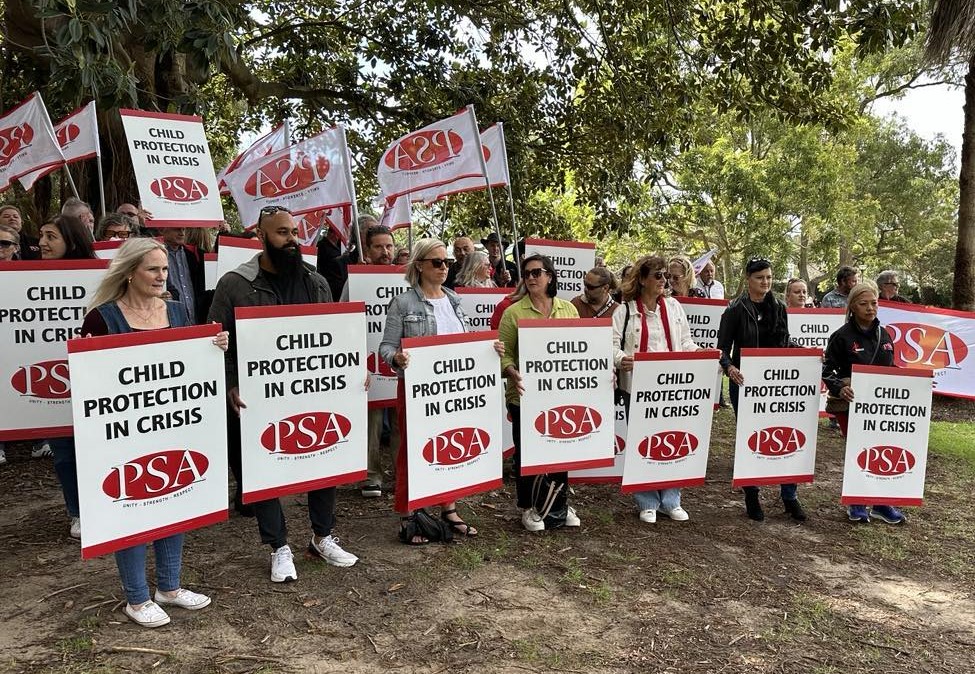
Following a month-long campaign by NSW caseworkers, the state’s Auditor-General found its child protection system to be “inefficient, ineffective and unsustainable”. Photo: NSW PSA.
Over the past 20 years, Ms Hollonds believes the inequity gap has only widened between children who have more advantages and those who live on the margins experiencing poverty, disadvantage or complex needs in their families.
Her report argues this is because Australia has “really misunderstood the nature of the problem we’re trying to solve by just focusing on the criminal justice system”.
“We’re spending over a million dollars a year every time we lock up a child; it’s like we’re throwing it away,” she said. “That money could be used to address the underlying causes of crime, and that’s what this report is trying to point to.
“Even its title is based on what kids said to me, ‘‘We need help way earlier!'”
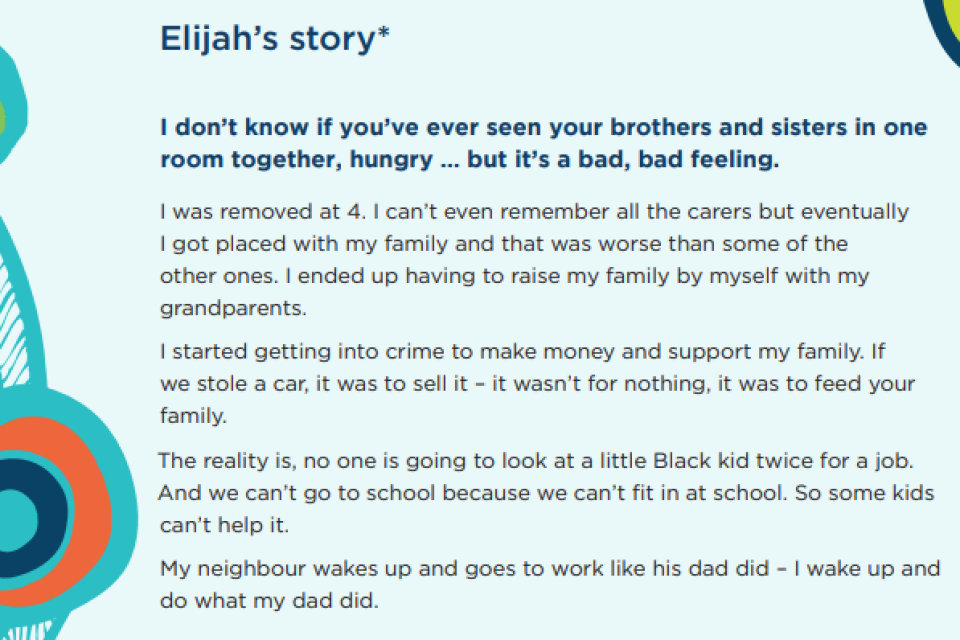




When asked if she was concerned by the new Northern Territory Chief Minister’s plans to go hard on crime, Ms Hollonds said no.
“I think the new government has a fantastic opportunity because they won very strongly,” she said. “Of course, no-one wants to live where there’s crime and clearly people in the NT are worried about crime rates.
“What I would encourage them to do now that they’re in, is just look at the evidence of what will make communities safer.”
After Victoria announced it was going to toughen its bail laws recently, Ms Hollonds’ advice for them was to “just look over the borders to Queensland and see how well that’s worked for them“.
“I was told everywhere that kids start out stealing food because they’re hungry. Then it sort of progresses from there and eventually they’re stealing cars or whatever.
“But these are preventable problems, the trajectory is really well known. Criminalisation just causes them to do more crime.”
The National Child Commissioner said early warning systems, particularly in health and education, were often mid last century in their design. Such that “we’re not equipped to deal with what could be described as an epidemic of unmet needs”.
“The kids tell me they don’t feel they belong at school and they’re dropping out really early at like eight or nine. But even if they stay longer, they barely make it into Year Seven and beyond.
“And we know living in a family and experiencing domestic and family violence is a key risk factor for involvement in the child protection system. They went and hung out on the streets with their friends because it wasn’t safe at home.
“Then the next station on the train line is the youth justice system.”
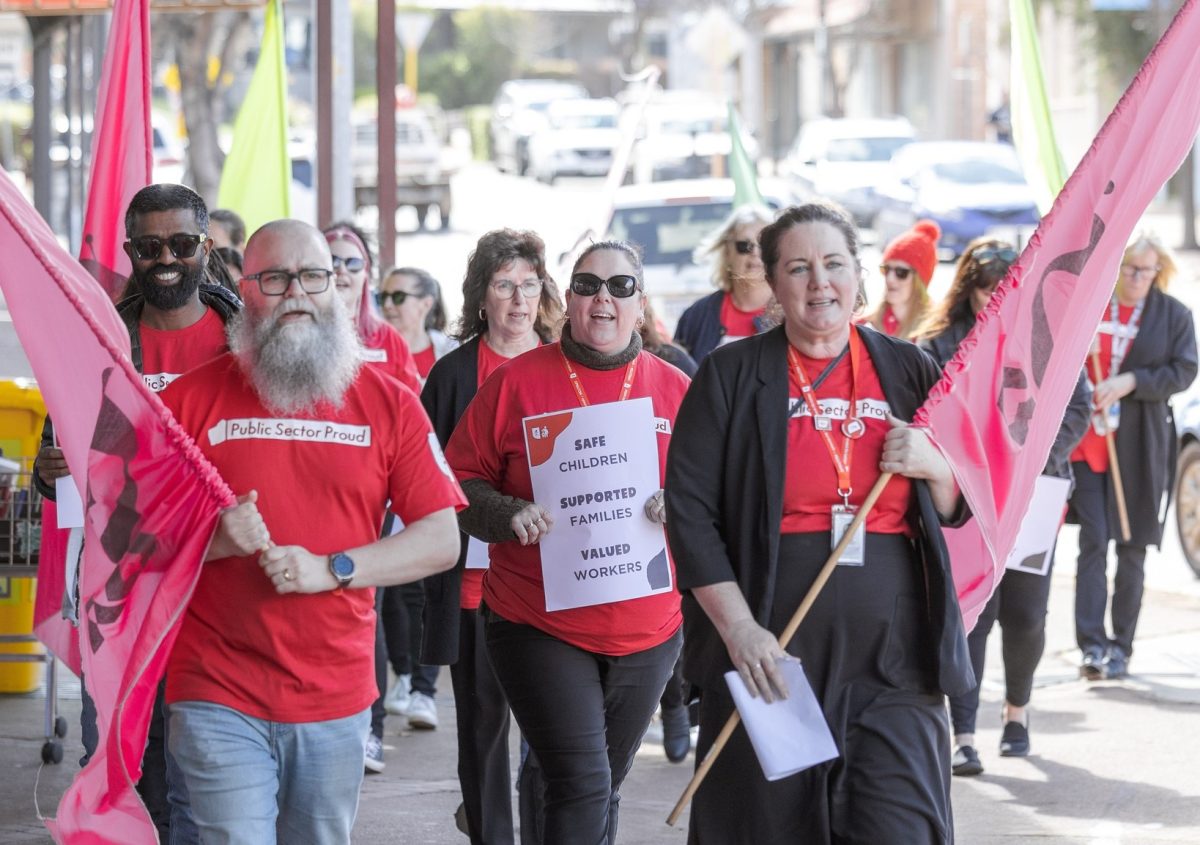
“The child protection system is like an ambulance at the bottom of a cliff,” said Ms Hollonds. “There’ll never be enough ambulances, but we do need them and we need them to be properly resourced.” Photo: CPSU/CSA.
Commissioner Hollonds was once a child protection worker – “the toughest job I’ve ever done”, so not much shocks her. But after hearing stories from young people imprisoned around the country “who really had lost all hope”, she said “we’ve ended up in a pretty dark place”.
“I met some children at a facility who had been in and out of prison since they were 10,” said Ms Hollonds. “These kids will often say they don’t see any future and feel they’ve been shut out by a society that just wants them in prison.
“When I inquired about who would help them when they left the prison, it was basically nobody. They had no adult to back them and they saw no future. They really saw it as inevitable they’d end up in the adult jail. Frankly, I found that chilling.”
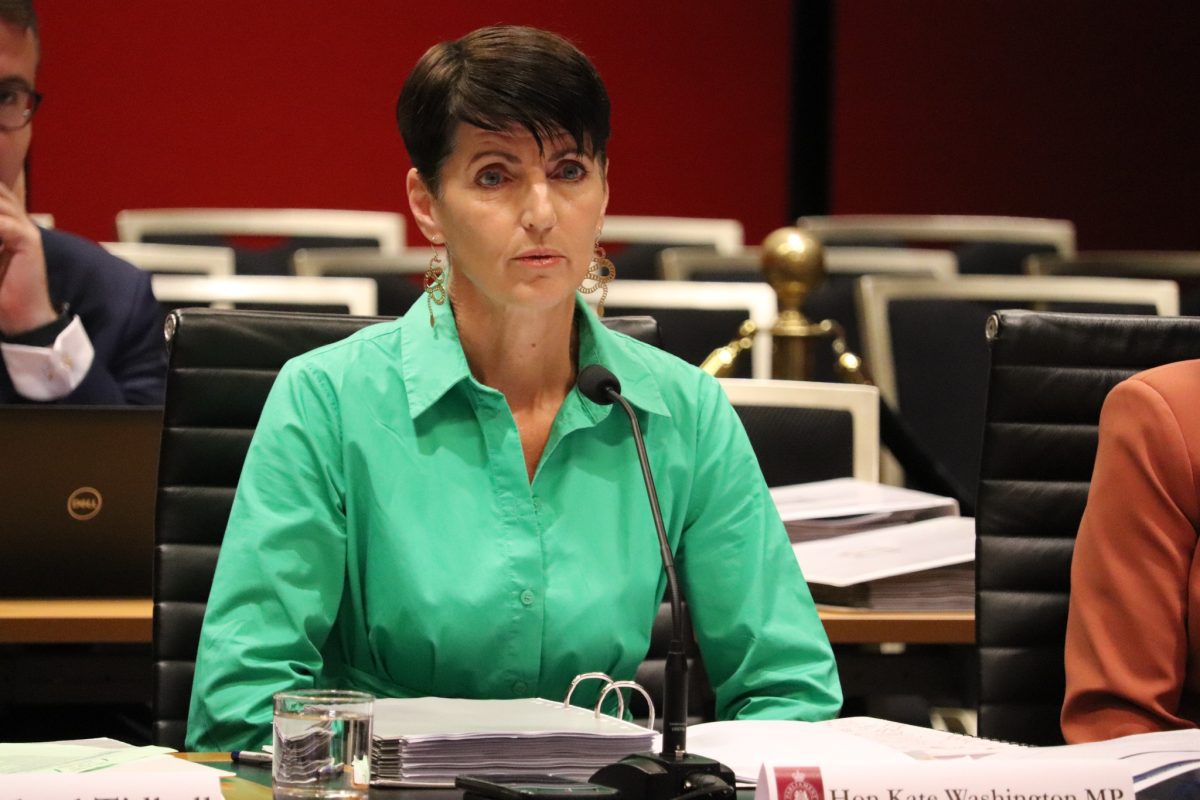
The NSW Government recently announced a “ban”, which followed a story broken by Region about a two-year-old foster care baby and their four-year-old sibling who were kept in hotel-type accommodation for 163 days. Photo: NSW Legislative Assembly.
Many of the issues raised in the report are state government responsibilities – a problem Ms Hollonds believes can be resolved with a national taskforce where everyone comes to the table and looks at the evidence from across Australia and overseas.
“There are local differences, but there are some principles that we can use to address the underlying causes of crime ,” she said.
The National Child Commissioner noted that several state premiers had agreed with her on this idea, but if the taskforce was established, it needed to be properly resourced.
“We need to look seriously at what the barriers to action are,” said Ms Hollonds.
“A whole bunch of barriers sit within government itself and I think that needs very strong attention.”
Original Article published by James Day on PS News.









